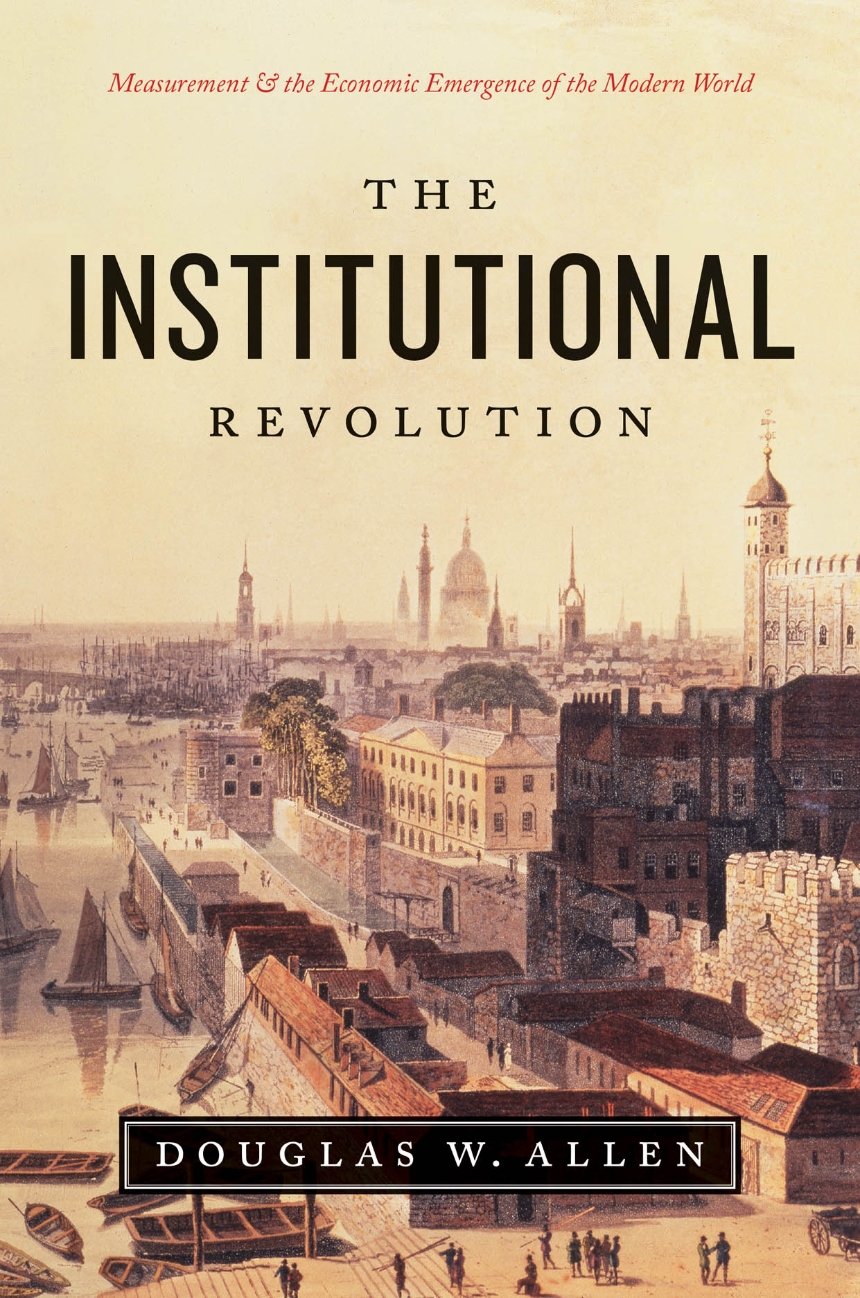The Institutional Revolution
Measurement and the Economic Emergence of the Modern World
The Institutional Revolution
Measurement and the Economic Emergence of the Modern World
Few events in the history of humanity rival the Industrial Revolution. Following its onset in eighteenth-century Britain, sweeping changes in agriculture, manufacturing, transportation, and technology began to gain unstoppable momentum throughout Europe, North America, and eventually much of the world—with profound effects on socioeconomic and cultural conditions.
288 pages | 2 line drawings, 1 table | 6 x 9 | © 2011
Markets and Governments in Economic History
Economics and Business: Economics--History
History: History of Ideas
Sociology: Individual, State and Society
Reviews
Table of Contents
Index
Awards
International Society for New Institutional Economics: Douglass C. North Prize
Won
